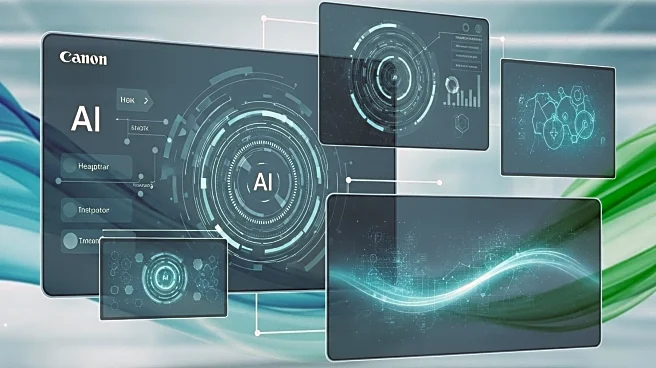What's Happening?
Agentic AI is transforming healthcare administration by automating routine tasks, thereby saving significant time and reducing burnout among healthcare workers. The technology streamlines processes such as appointment scheduling, insurance checks, and follow-up communications, potentially saving up to 70 minutes per patient visit. This automation addresses the high costs associated with manual administrative tasks, which amount to $90 billion annually. By implementing electronic workflows, healthcare providers can achieve substantial savings and improve efficiency, allowing medical staff to focus more on patient care.
Why It's Important?
The integration of Agentic AI in healthcare administration is crucial in addressing the ongoing challenges of staff shortages and burnout in the industry. By automating administrative tasks, healthcare providers can alleviate the burden on medical professionals, enhancing their work-life balance and improving patient care. This technological advancement not only reduces operational costs but also supports the sustainability of healthcare systems facing increasing demands. As the industry continues to evolve, the adoption of AI-driven solutions will be essential in maintaining efficient and effective healthcare delivery.
What's Next?
Healthcare providers are encouraged to integrate AI tools with existing systems, ensuring compliance with regulations and involving medical staff in the development process. By empowering healthcare professionals to lead AI-driven care, the industry can maximize the benefits of these technologies while maintaining ethical standards. As AI continues to advance, its role in healthcare administration is expected to expand, offering new opportunities for innovation and improved patient outcomes.
Beyond the Headlines
The ethical implications of AI in healthcare require careful consideration, particularly in maintaining the integrity of medical decision-making. As AI tools become more prevalent, healthcare providers must ensure that these technologies complement rather than replace human judgment, preserving the trust and reliability of patient care.








